Category: Eastern vs Western Thought
-
Are There Objective Moral Truths?

Are There Objective Moral Truths? Do right and wrong exist independently of human opinion? Or are they mere conventions shaped by culture, upbringing, or personal preference? This age-old question strikes at the heart of moral philosophy: Are there objective moral truths? Philosophers have debated the existence of a universal moral standard for millennia. In this…
-
Moral Absolutism vs Relativism: Which Makes More Sense?

Moral Absolutism vs Relativism: Which Makes More Sense? Moral absolutism vs relativism is one of the most persistent and polarizing debates in the field of ethics. It touches the core of how we justify right and wrong, how societies enforce moral codes, and whether ethics can be universal or are shaped entirely by context. At…
-
Intuition vs Logic in Eastern vs Western Methods
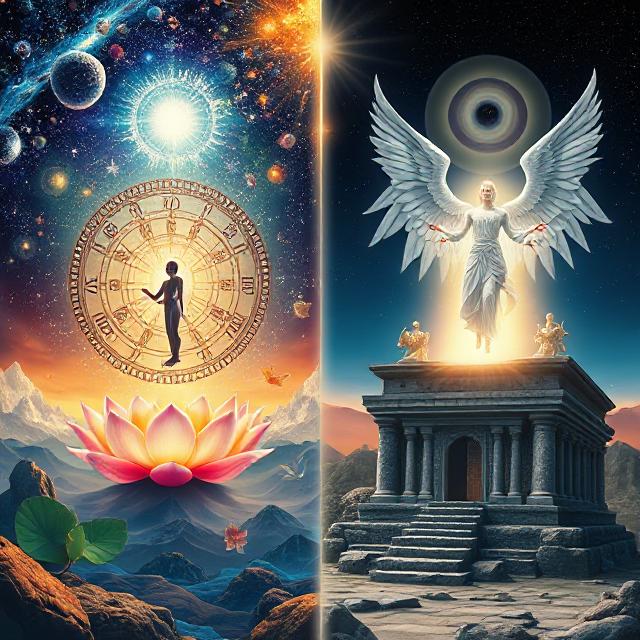
Intuition vs Logic in Eastern vs Western Methods Intuition vs logic in Eastern vs Western methods reflects a fundamental divergence in how human beings approach truth, knowledge, and problem-solving. While the West often privileges analytical reasoning, formal logic, and empirical verification, the East tends to emphasize intuition, holistic understanding, and experiential insight. This comparison isn’t…
-
Meditation vs Contemplation: East Meets West
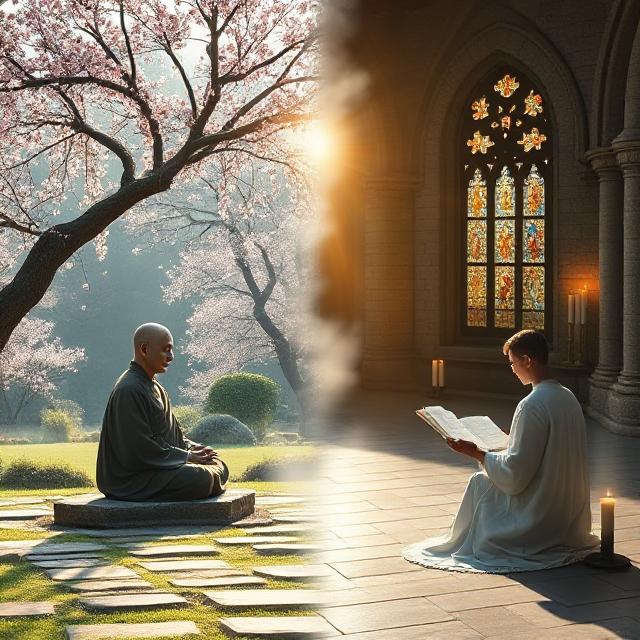
Meditation vs Contemplation: East Meets West Meditation vs contemplation may seem like a subtle linguistic distinction, but it actually reveals a deep philosophical divide between Eastern and Western approaches to inner transformation. These two practices are often viewed interchangeably in pop culture, yet they emerge from distinct worldviews with unique intentions, methods, and outcomes. To…
-
Moral Authority in Confucianism vs Social Contract Theory

Moral Authority in Confucianism vs Social Contract Theory Moral authority in Confucianism vs social contract theory is not just a question of East versus West, but a profound inquiry into the roots of legitimacy, obligation, and the very idea of justice. Does morality flow from tradition and hierarchy, as Confucius taught, or from individual consent…
-
Nirvana vs Heaven: Escaping or Ascending?

Nirvana vs Heaven: Escaping or Ascending? The human desire for transcendence has inspired many visions of what lies beyond the physical world. Among the most profound are the concepts of Nirvana in Buddhism and Heaven in the Abrahamic religions. These two ideas offer radically different visions of liberation: one as escape from the cycle of…
-
Rebirth vs Resurrection: Metaphysical Implications Explained
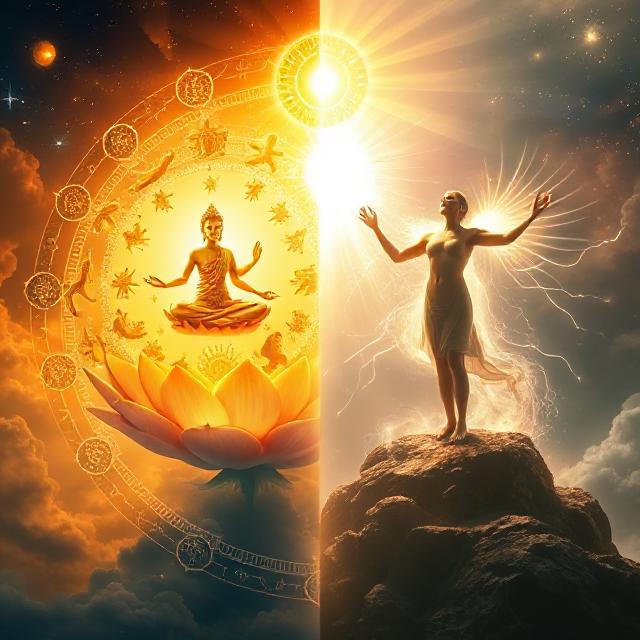
Rebirth vs Resurrection: Metaphysical Implications Explained What happens after we die? Two major answers dominate the religious and philosophical imagination: rebirth and resurrection. Though often used interchangeably in casual conversation, these concepts point to profoundly different metaphysical systems. Comparing rebirth vs resurrection is not just a matter of theology, but a window into how cultures…
-
Detachment in Zen vs Passion in Nietzsche
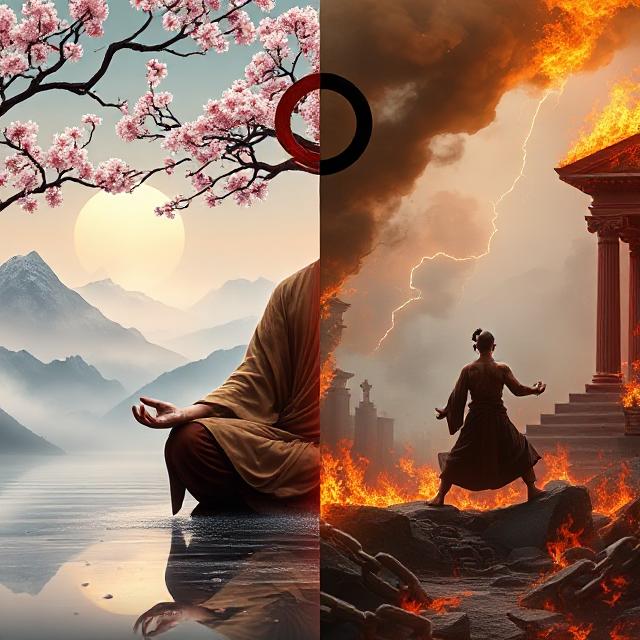
Detachment in Zen vs Passion in Nietzsche Detachment in Zen vs passion in Nietzsche presents one of the most fascinating contrasts in philosophy. These are not just abstract doctrines—they are full-blown ways of life. One urges silence, simplicity, and the shedding of the self. The other demands fire, intensity, and a willful embrace of becoming.…
-
Eastern Monism vs Western Dualism: Mind, Matter, and Unity
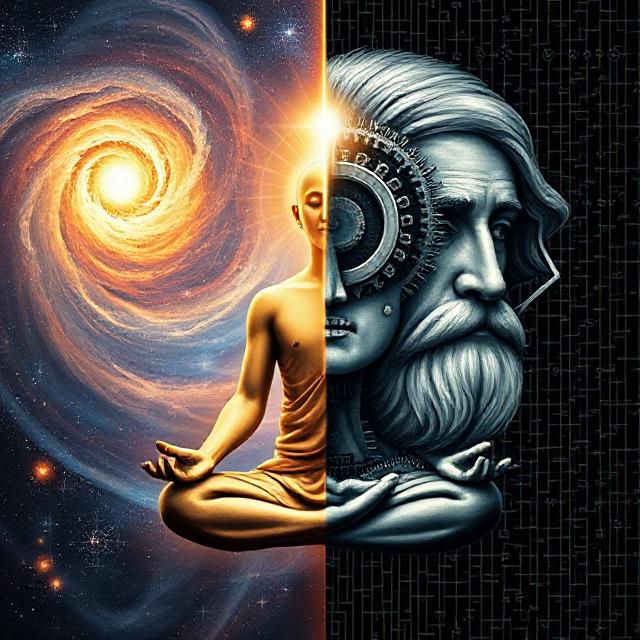
Eastern Monism vs Western Dualism: Mind, Matter, and Unity At the heart of philosophy lies one of its oldest and most enduring questions: What is the fundamental nature of reality? The contrast between Eastern monism vs Western dualism unveils two radically different metaphysical visions. While monism sees the cosmos as unified and indivisible, dualism divides…
-
Mindfulness in Buddhism vs Reason in Stoicism: Two Roads to Inner Mastery
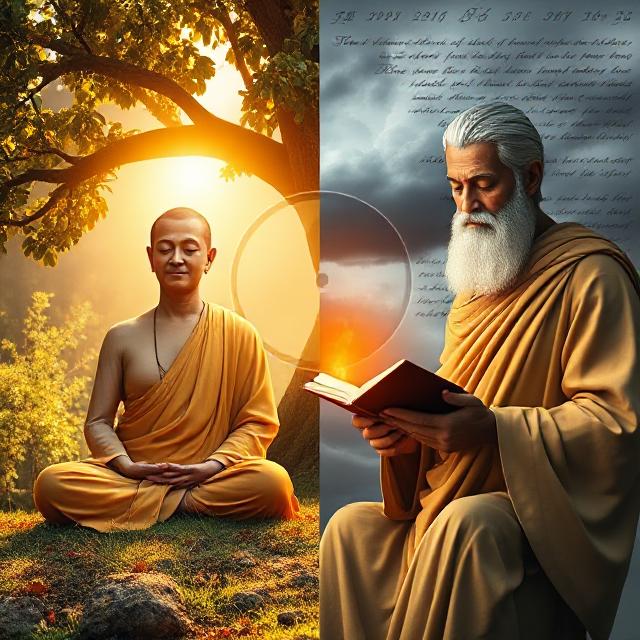
Mindfulness in Buddhism vs Reason in Stoicism: Two Roads to Inner Mastery The dialogue between mindfulness in Buddhism vs reason in Stoicism opens a compelling cross-cultural window into how human beings have long sought serenity amidst suffering. Both traditions aim to liberate the mind from destructive impulses, foster clarity, and cultivate a deeper sense of…
